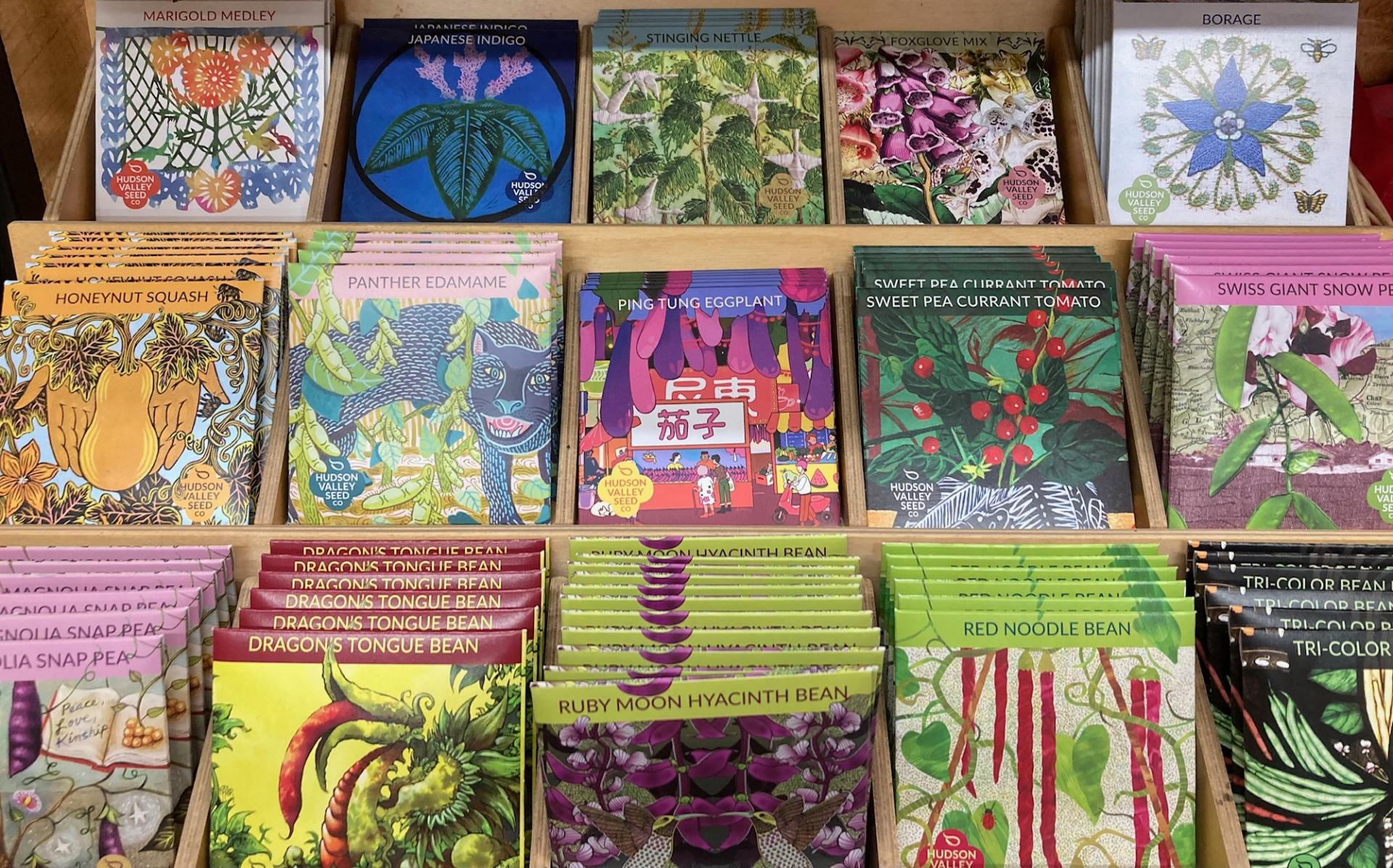You are here
Dreaming of Herbs
Dreaming of Herbs
By Barbara Smith
Enough with winter’s gray days and cold temperatures — let’s bring on some visions of sunshine and growing gardens! While many of us enjoy perusing the garden catalogs that fill our mailboxes with inspiration for perennials, vegetables, shrubs or trees, we may have overlooked information about herbs.
After last season’s inaugural series of columns concerning herbs, the work of the Berkshire Botanical Garden’s Herb Associates, and the beautiful display and production gardens we maintain, it seemed a natural next step to provide herb-specific information regarding sources for herb seeds and plants as well as some growing suggestions (direct sow or start ahead).
Fine Gardening magazine (April 2023) featured a story “8 Great Herbs to Grow from Seed” by Erin Walrath-Mariano. To begin, the author recommends five that benefit from starting seeds indoors — parsley, chamomile, Syrian oregano, calendula and lemon balm. These were chosen because they may take longer to germinate and/or to mature. Depending on your date of last frost, the date to sow seeds indoors is determined. The author recommended three other herbs for direct sowing — Genovese basil, dill and cilantro. These three fast growers reach maturity fairly quickly and may bolt in the summer heat. Therefore, successive, direct plantings will provide a longer season of tasty plants.
It’s likely that readers of this column may have their preferred seed sources already. Some favorites will likely include High Mowing Organic Seeds (Vermont-based, featuring 17 different varieties of basil!) highmowingseeds.com; Johnny’s Selected Seeds (Maine) johnnyseeds.com; and Baker Creek Heirloom Seeds (Missouri), found at rareseeds.com.
Another source that may be new to some readers is Richters, which has its parent company near Toronto, Canada, but which has a U.S. presence in New York State near Buffalo. They have a catalog featuring seventy pages of herb seeds and plants along with twenty pages of vegetables, with even more information and products available online. Richters’ Collections of Seeds include popular ones — a culinary herb garden pack or an edible flower pack, for example; they also have seed collections of Asian herbs and Indian Spices. Richters’ depth of variety is amazing! The company also sells herbal oils, plug packs and trays, dried herbs and herb tea blends. If you haven’t visited the Richters’ website, take a look. Such a wealth of products and information is available.
Finally, my internet search turned up several smaller seed companies, a few mentioned here as a sampling of companies whose products may interest you. True Love Seeds (Pennsylvannia firm) offers “culturally important and open pollinated vegetable, herb and flower seeds.” Their herb seed collections include ones named African Diaspora, East Asian, Italian, Roughwood, Seed of the Levant, South Asian and Southeast Asian. Farmacie Isolde (Hudson Valley) offers a “carefully curated selection of seeds ... to nourish, comfort and inspire curious gardeners, homesteaders, herbalists, imaginative homemakers and all kinds of caregivers.” The Hudson Valley Seed Company (New York) offers heirloom and open-pollinated seeds. The Alliance of Native Seed Keepers (rural North Carolina) features a “wide range of heirloom, organic, and native seeds” and state that they are “guardians of ancient foodways and sacred seed stories, working to mend the severed ties between indigenous communities and their irreplaceable seeds.”
Clearly, there are many options for the gardener looking to add or expand their herb varieties. This article gives you a snapshot of resources and suggestions, and hopefully some inspiration. As another Herb Associate commented, “so many herbs, so little space”! Happy planning!
The Berkshire Botanical Garden’s Herb Associates began in 1957 and have been making and selling products for the benefit of BBG ever since. At BBG, the Herb Associates oversee a display garden and production garden, both located near the Center House. Members/volunteers meet every Tuesday morning during the late spring through mid-autumn each year, coinciding when the gardens themselves are open to the public. Members plant, weed and tend the gardens, as well as harvest and process the variety of herbs.
Help Our Garden Grow!
Your donation helps us to educate and inspire visitors of all ages on the art and science of gardening and the preservation of our environment.
All donations are 100 percent tax deductible.



